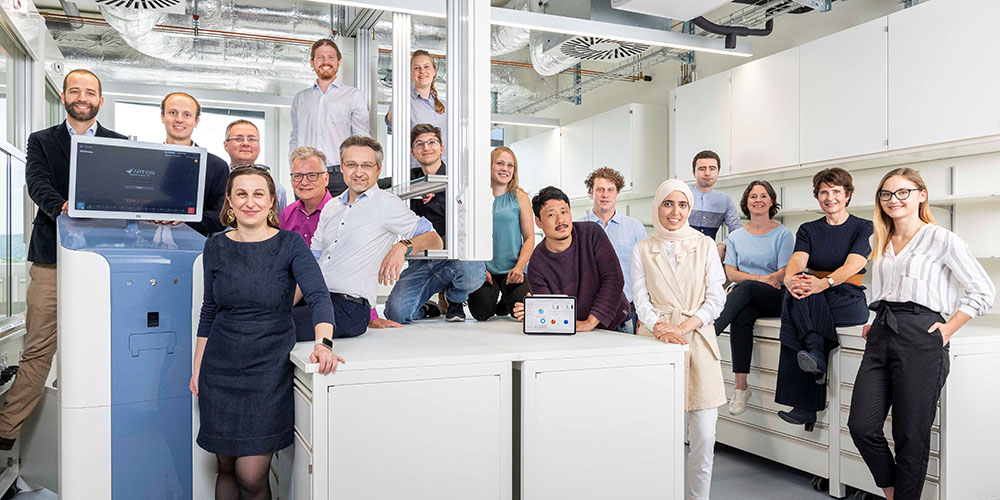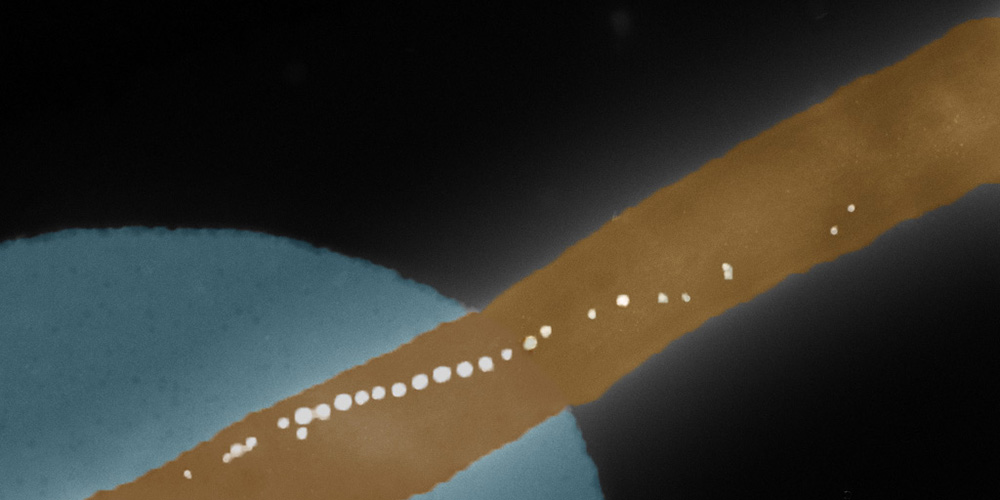Breast Cancer Diagnostics: Spin-off Artidis announces successful clinical trial
The company Artidis, a University of Basel spin-off, has announced that it developed a test procedure that can detect breast cancer with a very high sensitivity. This is demonstrated by a clinical trial that investigated whether a nanomechanical biomarker of tissue samples is suitable for the diagnosis of breast cancer.
23 June 2020
Artidis announced the successful completion of its clinical study “Nano,” which was performed to evaluate the utility and the sensitivity of a nanomechanical biomarker, developed by Artidis, for breast cancer diagnosis. The study was conducted at the Breast Center, University Hospital Basel, and at the University of Basel’s Biozentrum.
“We are very pleased with the excellent results from this first prospective study conducted in Switzerland. It clearly demonstrates the clinical utility of the nanomechanical biomarker in a routine clinical setting at the patient bedside,” says Dr. Marija Plodinec, CEO of Artidis. “We are convinced that this brings us one step closer to providing patients undergoing a biopsy procedure with a same-day diagnosis, opening the path to personalized cancer treatment plans guided by the ArtidisNet platform.”
The analyses were performed on data obtained from 520 patients. Biopsy tissues from the patients were categorized as “normal,” “benign” or “malignant” based on a “Nanomechanical Score” as determined by the Artidis platform. The clinical study reveals that the Artidis-nanotechnology was able to detect cancer with a sensitivity of 96 percent meeting the primary study objective of a sensitivity of at least 90 percent.
“Secondary analyses indicate that this novel technology will be able to subclassify the breast cancer subtypes into more or less aggressive subgroups, which could define the patients’ treatment plan and thus reduce over- and undertreatment,” says Dr. Rosemarie Burian, gynecologist at the Breast Center, University Hospital Basel and lead investigator of the study.
Basel-based health-tech company
Artidis is a spin off from the lab of Argovia Professor Roderick Lim at the Biozentrum of the University of Basel and the Swiss Nanoscience Institute.
The Basel-based health-tech company has developed the first nanomechanical biomarker for cancer diagnosis and treatment optimization. The Artidis nanotechnology platform integrates the mechanical biomarker data with other clinical parameters into the ArtidisNet data platform, enabling personalized disease prognosis and allowing physicians to significantly shorten the current diagnostic process.
“We are also expanding our clinical program to include the diagnosis of lung and pancreatic cancers and to identify its potential for treatment optimization in collaboration with centers in Barcelona, Spain, and the Texas Medical Center in Houston, USA,” comments Marija Plodinec.
Artidis also announces that the application of the nanotechnology platform is not limited to oncology, but can be used to analyze any kind of tissue.
This news is based on a press release published by Artidis.


